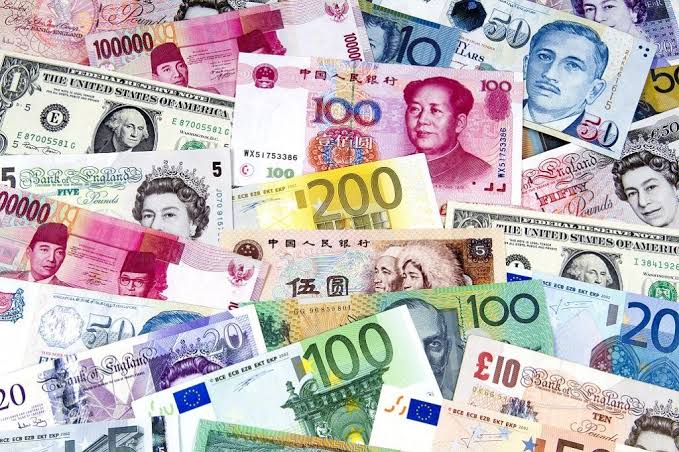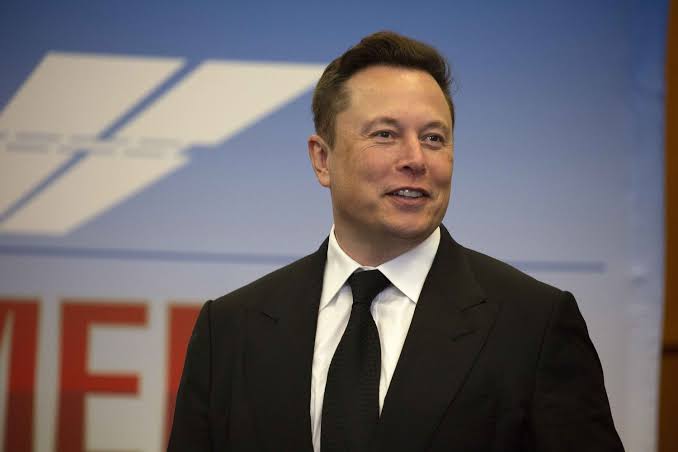Top 20 Largest Electronics Companies in the World
Largest Electronics Companies in the World
The electronics industry is one of the fastest-growing and most competitive industries in the world. With constant advancements in technology, there is a continuous demand for innovative and cutting-edge electronic products. This has led to the rise of numerous companies that specialize in manufacturing and selling electronics.
From smartphones to laptops, from home appliances to gaming consoles, these companies have taken over the market by storm with their high-quality and technologically advanced products. Their success can be attributed to their strong research and development departments, strategic partnerships, and efficient marketing strategies.
Importance of Electronics Companies
One of the key reasons why electronics companies hold such importance is their contribution to the global economy. The top electronics companies employ millions of people worldwide and generate billions of dollars in revenue each year. This not only provides employment opportunities but also boosts economic growth and development in countries where these companies are based.
Electronics companies have a significant impact on consumer behavior and lifestyle choices. With the constant introduction of new products and upgrades, consumers are enticed to keep up with the latest technology trends. This leads to a continuous demand for newer and better electronic devices, which ultimately drives sales for these companies.
In addition, as technology continues to advance at a rapid pace, electronics companies play a critical role in driving innovation. These companies invest heavily in research & development (R&D) to come up with cutting-edge technologies that can revolutionize various industries. For instance, advancements in artificial intelligence (AI), virtual reality (VR), and Internet of Things (IoT) have been made possible by the relentless efforts of top electronics companies.
Apart from their direct impact on the economy and consumer behavior, electronics companies also contribute towards sustainability efforts. With growing concerns about environmental issues such as pollution and climate change, there is a greater emphasis on using eco-friendly materials and energy-efficient technologies in electronic devices. Top electronics companies are taking steps towards sustainable practices through initiatives such as reducing e-waste by promoting recycling programs or using renewable energy sources in their manufacturing processes.
Furthermore, these large-scale organizations also play an important role in shaping global trade relations. As most electronic components are manufactured or assembled overseas before being distributed globally, electronics companies contribute significantly to the international market and trade agreements between countries.
Top 20 Largest Electronics Companies in the World
1. Samsung Electronics Co., Ltd.
Samsung Electronics Co., Ltd. is a South Korean multinational electronics company headquartered in Suwon, South Korea. It was founded in 1969 by Lee Byung-Chul and has since become one of the largest and most influential companies in the world.
Mission statement: “Inspire the world with our innovative technologies, products, and design that enrich people’s lives and contribute to social prosperity by creating a new future.”
Key Achievements:
- Samsung is the largest manufacturer of smartphones in the world, holding over 20% market share.
- It is also the largest producer of memory chips, accounting for more than 30% of global market share.
- In 2019, Samsung ranked 6th on Forbes’ list of World’s Most Valuable Brands.
- The company has won numerous awards for its innovative products, including CES Innovation Awards and Red Dot Design Awards.
Notable Products:
- Galaxy smartphones
- QLED TVs
- Notebook computers
- Home appliances (refrigerators, washing machines)
- Memory chips (DRAM/NAND)
Financials:
In 2020, Samsung reported a revenue of $236 billion USD with a net income of $25 billion USD. The company has consistently been among the top 10 companies in terms of revenue globally.
Market Share:
Samsung is a dominant player in the electronics industry, with a market share of 20.9% in smartphones and 33.8% in memory chips.
Adaptations to Market Trends:
Samsung has continuously adapted to changing market trends by diversifying its product portfolio and investing heavily in research and development. In recent years, it has focused on developing new technologies such as foldable phones and 5G capabilities. The company also emphasizes sustainability, incorporating eco-friendly features into its products and implementing sustainable practices throughout its supply chain.
Controversies/Challenges:
In 2016, Samsung faced a major crisis when reports of exploding batteries in their flagship smartphone, the Galaxy Note 7, surfaced. The company had to recall millions of devices and suffered a significant financial loss as well as damage to their reputation. However, Samsung was able to bounce back from this incident through effective crisis management and product improvements.
2. Apple Inc.
Apple Inc. is an American multinational technology company headquartered in Cupertino, California. It was founded in 1976 by Steve Jobs, Steve Wozniak, and Ronald Wayne and has become one of the most valuable companies in the world.
Mission statement: “Apple designs Macs, the best personal computers in the world, along with OS X, iLife, iWork and professional software. Apple leads the digital music revolution with its iPods and iTunes online store. Apple has reinvented the mobile phone with its revolutionary iPhone and App Store, and is defining the future of mobile media and computing devices with iPad.”
Key Achievements:
- Apple is the first publicly traded company to reach a market valuation of $1 trillion USD.
- It is a leader in the smartphone industry, holding around 15% global market share.
- In 2020, Apple ranked 4th on Forbes’ list of World’s Most Valuable Brands.
- The company has won numerous design awards for its products, including multiple Red Dot Design Awards.
Notable Products:
- iPhone
- MacBook laptops
- iPad tablets
- iMac desktop computers
- AirPods
Apple Watch
Financials:
In 2020, Apple reported a revenue of $274 billion USD with a net income of $57 billion USD. The company consistently ranks among the top companies in terms of revenue globally.
Market Share:
Apple holds around 14.6% market share in the global smartphone industry and is the second-largest player after Samsung.
Adaptations to Market Trends:
Apple has always been at the forefront of innovation, constantly introducing new and advanced features in its products. The company has also expanded its product portfolio beyond computers and smartphones, venturing into other areas such as wearables and streaming services. In recent years, Apple has also focused on sustainability efforts, announcing plans to become carbon neutral by 2030.
Controversies/Challenges:
Apple has faced criticism for its high pricing strategy and for allegedly using sweatshop labor in its supply chain. The company has also been involved in legal battles over patent infringement with competitors. However, Apple continues to maintain a strong brand image and loyal customer base.
3. Huawei Technologies Co., Ltd.
Huawei Technologies Co., Ltd. is a Chinese multinational technology company headquartered in Shenzhen, China. It was founded in 1987 by Ren Zhengfei and has grown to become one of the largest telecommunications equipment and consumer electronics companies in the world.
Mission statement: “Enrich life through communication.”
Key Achievements:
- Huawei is the largest manufacturer of telecommunications equipment in the world.
- In 2020, it ranked 45th on Forbes’ list of World ‘s Most Valuable Brands.
- The company has won several awards for its 5G technology and smartphones, including the GSMA Best Mobile Technology Breakthrough Award.
Notable Products:
- Huawei smartphones (including sub-brand Honor)
- Telecommunications equipment (networking, servers, routers)
- Laptops
- Smartwatches
Financials:
In 2019, Huawei reported a revenue of $122 billion USD with a net income of $8.8 billion USD. The company has consistently shown strong financial performance and has been among the top 10 companies in terms of revenue globally.
Market Share:
Huawei is a dominant player in the Chinese market, holding around 40% market share in smartphones. However, it faces challenges in other markets due to increasing political tensions with the US government.
Adaptations to Market Trends:
Huawei has invested heavily in developing advanced technologies such as 5G and artificial intelligence. The company also focuses on providing affordable options for consumers, particularly in emerging markets. Additionally, Huawei has made efforts towards sustainability by launching eco-friendly products and implementing green initiatives throughout its supply chain.
Controversies/Challenges:
Huawei has faced numerous controversies related to security concerns and allegations of intellectual property theft from competitors. In 2019, the company was placed on a US trade blacklist, restricting its access to key technologies and impacting its global expansion plans. However, Huawei has continued to thrive in the Chinese market and remains a major player in the global electronics industry.
Panasonic Corporation is a Japanese multinational electronics company headquartered in Kadoma, Osaka. It was founded in 1918 by Konosuke Matsushita and has become one of the largest consumer electronics companies in the world.
Mission statement: “We are making progress toward becoming a truly comprehensive electronic manufacturing company with our core strengths in consumer electronics, housing-related systems and automotive.”
Key Achievements:
- Panasonic is a leader in home appliances, holding around 14% market share globally.
- The company has won multiple awards for its innovative products, including CES Innovation Awards and Red Dot Design Awards.
- In 2019, Panasonic ranked 73rd on Forbes’ list of World’s Most Valuable Brands.
Notable Products:
- TVs
- Home appliances (refrigerators, washing machines)
- Batteries
- Automotive components (batteries, infotainment systems)
Financials:
In 2020, Panasonic reported a revenue of $68 billion USD with a net income of $1.7 billion USD. The company has consistently been among the top 20 companies in terms of revenue globally.
Market Share:
Panasonic holds a significant market share in several industries, including home appliances, automotive components, and batteries.
Adaptations to Market Trends:
Panasonic has diversified its product portfolio to include a wide range of electronic products for both consumer and industrial use. The company has also made efforts towards sustainability, introducing eco-friendly technologies and implementing green initiatives throughout its operations.
Controversies/Challenges:
In recent years, Panasonic has faced challenges due to declining sales in certain product categories such as smartphones and TVs. However, the company remains a major player in the electronics industry, particularly in Japan and other Asian markets.
Sony Corporation is a Japanese multinational conglomerate corporation headquartered in Tokyo. It was founded in 1946 by Masaru Ibuka and Akio Morita and has become one of the leading companies in the global electronics industry.
Mission statement: “To provide customers with kando – to move them emotionally – through inspiring experiences that utilize our leading-edge technologies.”
Key Achievements:
- Sony is a leader in the gaming industry with its PlayStation consoles.
- The company is also known for its high-quality cameras and audio equipment.
- In 2020, Sony ranked 57th on Forbes’ list of World’s Most Valuable Brands.
Notable Products:
- PlayStation consoles and games
- Cameras (including digital cameras, mirrorless cameras)
- Audio equipment (speakers, headphones)
- TVs
Financials:
In 2020, Sony reported a revenue of $76 billion USD with a net income of $8.2 billion USD. The company has consistently been among the top 20 companies in terms of revenue globally.
Market Share:
Sony has a significant market share in the gaming industry with its PlayStation consoles. It also holds a considerable share in the camera and audio equipment markets.
Adaptations to Market Trends:
Sony has continuously adapted to changing market trends by diversifying its product portfolio and investing in research and development. The company has also focused on sustainability by implementing eco-friendly practices throughout its operations.
Controversies/Challenges:
Sony has faced challenges such as declining sales in certain product categories and intense competition from other companies. However, it remains a major player in the electronics industry, particularly in gaming and entertainment.
6. LG Electronics Inc.
LG Electronics Inc. is a South Korean multinational electronics company headquartered in Seoul, South Korea. It was founded in 1958 as GoldStar and rebranded as LG Electronics in 1995. The company has become one of the leading manufacturers of electronic products globally.
Mission statement: “To create products that enhance the way people live, work and play.”
Key Achievements:
- LG is a leader in home appliances, holding around 12% market share globally.
- The company is also known for its innovative smartphones, TVs, and other consumer electronics.
- In 2020, LG ranked 88th on Forbes’ list of World’s Most Valuable Brands.
Notable Products:
- TVs
- Home appliances (refrigerators, washing machines)
- Smartphones
- Air conditioners
Financials:
In 2020, LG reported a revenue of $53 billion USD with a net income of $2.5 billion USD. The company has consistently been among the top 25 companies in terms of revenue globally.
Market Share:
LG holds significant market share in several industries including home appliances and smartphones.
Adaptations to Market Trends:
LG has diversified its product portfolio to offer a wide range of electronic products for both consumer and industrial use. The company has also focused on developing new technologies, such as OLED screens, to stay competitive in the market.
Controversies/Challenges:
LG has faced challenges such as declining sales in certain product categories and intense competition from other companies. However, it remains a major player in the electronics industry, particularly in home appliances and smartphones.
7. ZTE Corporation
ZTE Corporation is a Chinese multinational telecommunications equipment and systems company headquartered in Shenzhen, China. It was founded in 1985 by Hou Weigui and has become one of the largest telecommunications companies globally.
Mission statement: “To connect the world with continuous innovation for superior user experience.”
Key Achievements:
- ZTE is the second-largest manufacturer of telecommunications equipment in China.
- The company has a strong presence in emerging markets, particularly in Africa and Asia.
- In 2020, ZTE ranked 100th on Forbes’ list of World’s Most Valuable Brands.
Notable Products:
- Telecommunications equipment (networking, servers, routers)
- Smartphones
- Other consumer electronics (smartwatches, projectors)
Financials:
In 2019, ZTE reported a revenue of $17 billion USD with a net income of $530 million USD. The company has consistently shown strong financial performance and has been among the top 10 companies in terms of revenue globally.
Market Share:
ZTE holds around 10% market share in the global smartphone industry and is a major player in the telecommunications equipment market.
Adaptations to Market Trends:
ZTE has adapted to changing market trends by focusing on affordable smartphones for emerging markets and investing in 5G technology. The company has also implemented sustainability practices, including efforts to reduce carbon emissions and promote green initiatives.
Controversies/Challenges:
ZTE has faced challenges in recent years, including a US export ban in 2018 due to allegations of violating sanctions on Iran and North Korea. The company also faces competition from other Chinese smartphone manufacturers such as Huawei and Xiaomi. However, ZTE continues to be a major player in the global electronics industry.
8. Xiaomi Corporation
Xiaomi Corporation is a Chinese multinational electronics company headquartered in Beijing, China. It was founded in 2010 by Lei Jun and has quickly become one of the largest smartphone manufacturers globally.
Mission statement: “Innovation for everyone.”
Key Achievements:
- Xiaomi is one of the top five smartphone manufacturers in the world.
- The company has a strong presence in emerging markets, particularly in India.
- In 2020, Xiaomi ranked 24th on Forbes’ list of World’s Most Valuable Brands.
Notable Products:
- Smartphones
- Smart home devices (smart speakers, security cameras)
- Laptops
- Fitness trackers
Financials:
In 2019, Xiaomi reported a revenue of $30 billion USD with a net income of $2.3 billion USD. The company has shown significant financial growth since its inception and continues to expand its market share globally.
Market Share:
Xiaomi holds around 11% market share in the global smartphone industry and is a major player in the Chinese market.
Adaptations to Market Trends:
Xiaomi has adapted to changing market trends by offering affordable smartphones with high-end features and investing in new technologies such as 5G. The company also focuses on expanding its product portfolio to include smart home devices and other consumer electronics.
Controversies/Challenges:
Xiaomi has faced challenges such as accusations of copying designs from other companies and legal disputes with competitors. The company also faces intense competition in the Chinese smartphone market. However, Xiaomi continues to grow its global presence and remains a major player in the electronics industry.
9. ASUSTeK Computer Inc.
ASUSTeK Computer Inc., also known as ASUS, is a Taiwanese multinational computer and phone hardware and electronics company headquartered in Taipei, Taiwan. It was founded in 1989 by T.H. Tung, Ted Hsu, Wayne Hsieh, and M.T. Liao and has become one of the largest computer hardware manufacturers globally.
Mission statement: “In search of incredible.”
Key Achievements:
- ASUS is one of the top five PC manufacturers in the world.
- The company is known for its high-quality gaming laptops and motherboards.
- In 2020, ASUS ranked 79th on Forbes’ list of World’s Most Valuable Brands.
Notable Products:
- Laptop computers (including gaming laptops)
- Motherboards
- Graphics cards
- Smartphones
Financials:
In 2020, ASUS reported a revenue of $9 billion USD with a net income of $729 million USD. The company consistently ranks among the top companies in terms of revenue globally.
Market Share:
ASUS holds around 7% market share in the global PC industry and is a leading player in the gaming laptop market.
Adaptations to Market Trends:
ASUS has adapted to changing market trends by focusing on high-performance gaming laptops and investing in new technologies such as virtual reality. The company also offers a range of products for different consumer segments, including affordable options for budget-conscious consumers.
Controversies/Challenges:
ASUS has faced challenges such as declining sales in certain product categories, particularly smartphones. The company also faces intense competition from other PC manufacturers. However, ASUS remains a major player in the global electronics industry, particularly in the computer hardware market.
10. Lenovo Group Limited
Lenovo Group Limited is a Chinese multinational technology company headquartered in Beijing, China. It was founded in 1984 by Liu Chuanzhi and has become one of the largest PC manufacturers globally.
Mission statement: “We are dedicated to transforming our customers’ experience with technology – and how it, and they, interact with the world around us.”
Key Achievements:
- Lenovo is the largest PC manufacturer in the world, holding around 25% market share.
- The company has a strong presence in emerging markets, particularly in India.
- In 2020, Lenovo ranked 231st on Forbes’ list of World’s Most Valuable Brands.
Notable Products:
- Laptop computers
- Desktop computers
- Tablets
- Smartphones
Financials:
In 2020, Lenovo reported a revenue of $50 billion USD with a net income of $665 million USD. The company consistently ranks among the top companies in terms of revenue globally.
Market Share:
Lenovo holds around 7% market share in the global smartphone industry and is a leading player in the PC market.
Adaptations to Market Trends:
Lenovo has adapted to changing market trends by focusing on affordable laptops and investing in new technologies such as virtual reality. The company also offers a range of products for different consumer segments, including budget-friendly options for price-sensitive consumers.
Controversies/Challenges:
Lenovo has faced challenges such as declining sales in certain product categories and intense competition from other PC manufacturers. However, it remains a major player in the global electronics industry with its strong brand reputation and presence across various product categories.
11. Intel Corporation
Founded in 1968
Headquarters: Santa Clara, California, USA
Revenue: $77.9 billion USD (2020)
Products: Microprocessors, Chipsets, Motherboards, Flash memory, Solid-state drives
12. Cisco Systems Inc.
Founded in 1984
Headquarters: San Jose, California, USA
Revenue: $49.3 billion USD (2020)
Products: Routers, Switches, Network security products
13. TSMC (Taiwan Semiconductor Manufacturing Company)
Founded in 1987
Headquarters: Hsinchu Science and Industrial Park, Taiwan
Revenue: $45.5 billion USD (2020)
Products: Semiconductors for various electronic devices
14. Texas Instruments Inc.
Founded in 1930
Headquarters: Dallas, Texas, USA
Revenue: $14.4 billion USD (2019)
Products: Semiconductors for various electronic devices including calculators and microcontrollers
15. NVIDIA Corporation
Founded in 1993
Headquarters: Santa Clara, California, USA
Revenue: $16.6 billion USD (2020)
Products – Graphics processing units (GPUs), System-on-a-chip (SoC) processors, Artificial Intelligence (AI) computing platforms
16. Infineon Technologies AG
Founded in 1999
Headquarters: Neubiberg, Germany
Revenue: $8.5 billion USD (2020)
Products: Semiconductors for automotive, industrial, and security systems
17. Applied Materials Inc.
Founded in 1967
Headquarters: Santa Clara, California, USA
Revenue: $17.2 billion USD (2020)
Products – Semiconductor manufacturing equipment, solar panels, display panels
18. Broadcom Inc.
Founded in 1991
Headquarters: San Jose, California, USA
Revenue: $24.5 billion USD (2020)
Products – Semiconductors for wireless and broadband communications, networking solutions
19. Panasonic Corporation
Founded in 1918
Headquarters : Osaka, Japan
Revenue: $71.8 billion USD (2020)
Products – Consumer electronics including televisions, cameras, home appliances; automotive electronics; batteries and energy solutions.
20.Toshiba Corporation
Founded in 1875
Headquarters: Tokyo, Japan
Revenue: $36.9 billion USD (2020)
Products – Consumer electronics including laptops, TVs, home appliances; industrial and social infrastructure systems; electronic components and materials.






